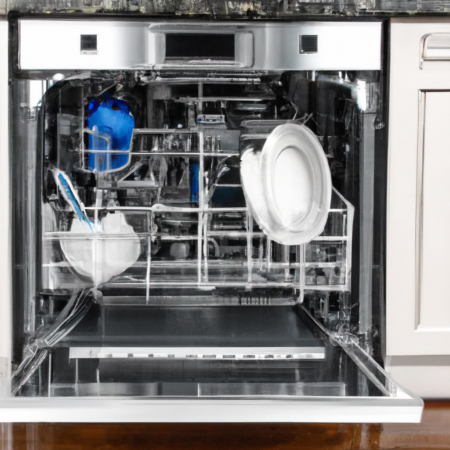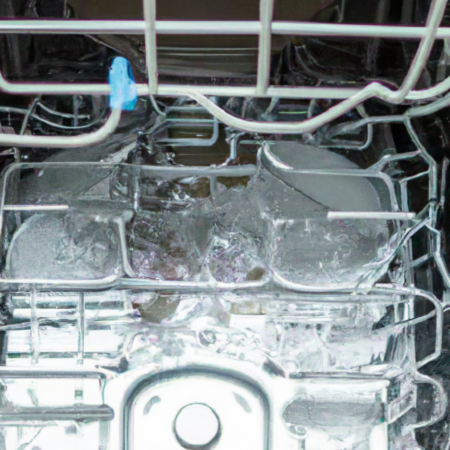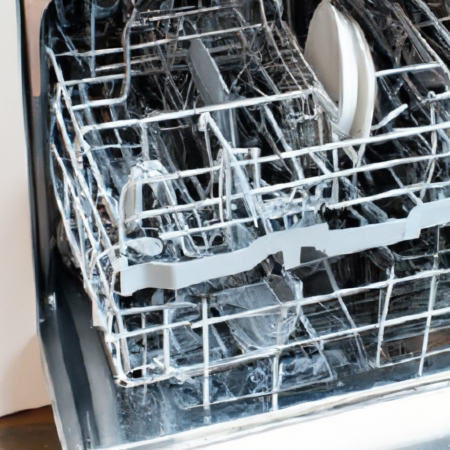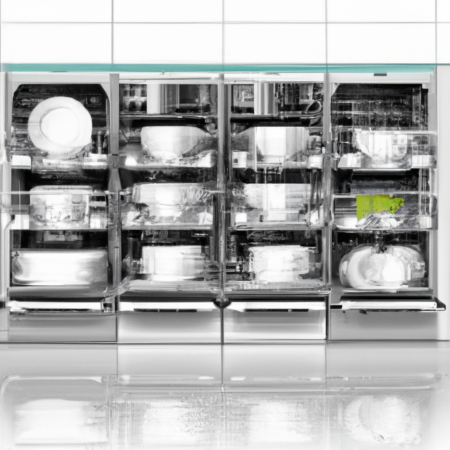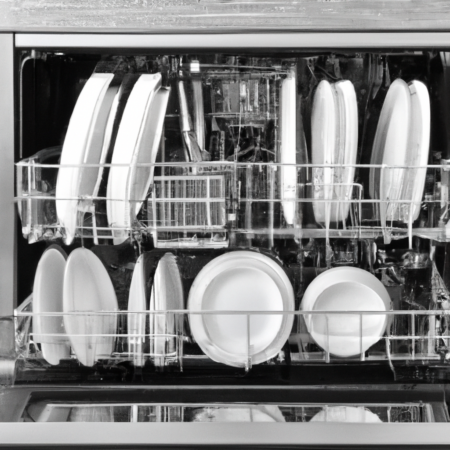Have you ever wondered what would happen if you put non-dishwasher safe plastic in your dishwasher? Well, the answer might surprise you. When you accidentally or unknowingly pop that plastic container or utensil into the dishwasher, the consequences could range from slight discoloration to full-on melting. The high heat and powerful water jets in the dishwasher can cause the plastic to warp, melt, or release harmful chemicals into your dishes. So, next time you go to load your dishwasher, take a moment to check if your plastic items are dishwasher safe to avoid any unwelcome surprises.
Understanding Non-Dishwasher Safe Plastics
Plastics that are deemed non-dishwasher safe are those that are not designed to withstand the high temperatures and aggressive detergents used in dishwashers. These plastics can include various types of containers, utensils, and even certain food storage bags. It is important to understand the implications of using non-dishwasher safe plastics to ensure the safety and longevity of both the plastic items and your dishwasher.
Common types of non-dishwasher safe plastics
There are several types of plastics that are commonly found to be non-dishwasher safe. These include polystyrene (PS), polyvinyl chloride (PVC), and polycarbonate (PC). These plastics have a low tolerance for high heat and can easily warp, melt, or release harmful chemicals when exposed to the hot water and intense cleaning agents used in dishwashers.
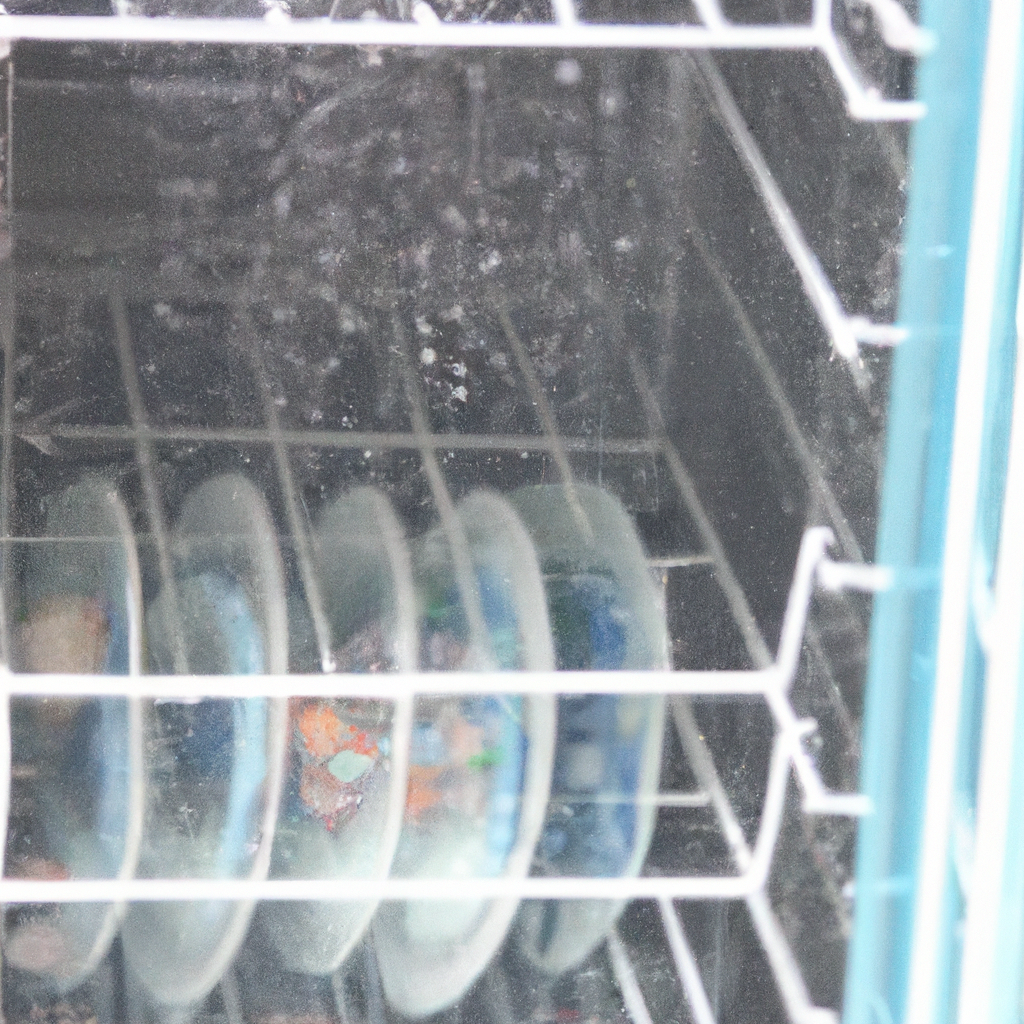
How to identify non-dishwasher safe plastics
To identify whether a plastic item is dishwasher safe or not, it is essential to look for specific symbols or labels. The most common symbol to indicate dishwasher safety is a small plate or glass with water droplets above it. This symbol signifies that the plastic item can withstand the high temperatures and detergents used in the dishwasher. On the other hand, if there is a crossed-out plate or a similar symbol, it indicates that the plastic item is not suitable for dishwasher use and should be hand washed instead.
Risks Associated With Dishwashing Non-Dishwasher Safe Plastics
Using non-dishwasher safe plastics in your dishwasher can lead to various risks and complications.
Damage to the plastic
One of the primary risks is the potential damage to the plastic items themselves. The high heat and forceful sprays of water in the dishwasher can cause warping, deformation, and even breakage of the plastic. This can render the items unusable or affect their functionality.
Degradation of the plastic
Non-dishwasher safe plastics can undergo degradation when exposed to the intense cleaning agents used in dishwashers. These cleaning agents can break down the molecular structure of the plastic, leading to a loss of strength and durability. Over time, this degradation can make the plastic items prone to cracking, chipping, or breaking.
Risk of plastic melting and causing dishwasher damage
Plastics that are not designed for dishwasher use can melt or warp when exposed to the high heat inside the dishwasher. This melted plastic can then adhere to the dishwasher’s heating elements, spray arms, or filters, potentially causing damage to the dishwasher itself. This can result in costly repairs or the need for a replacement dishwasher altogether.
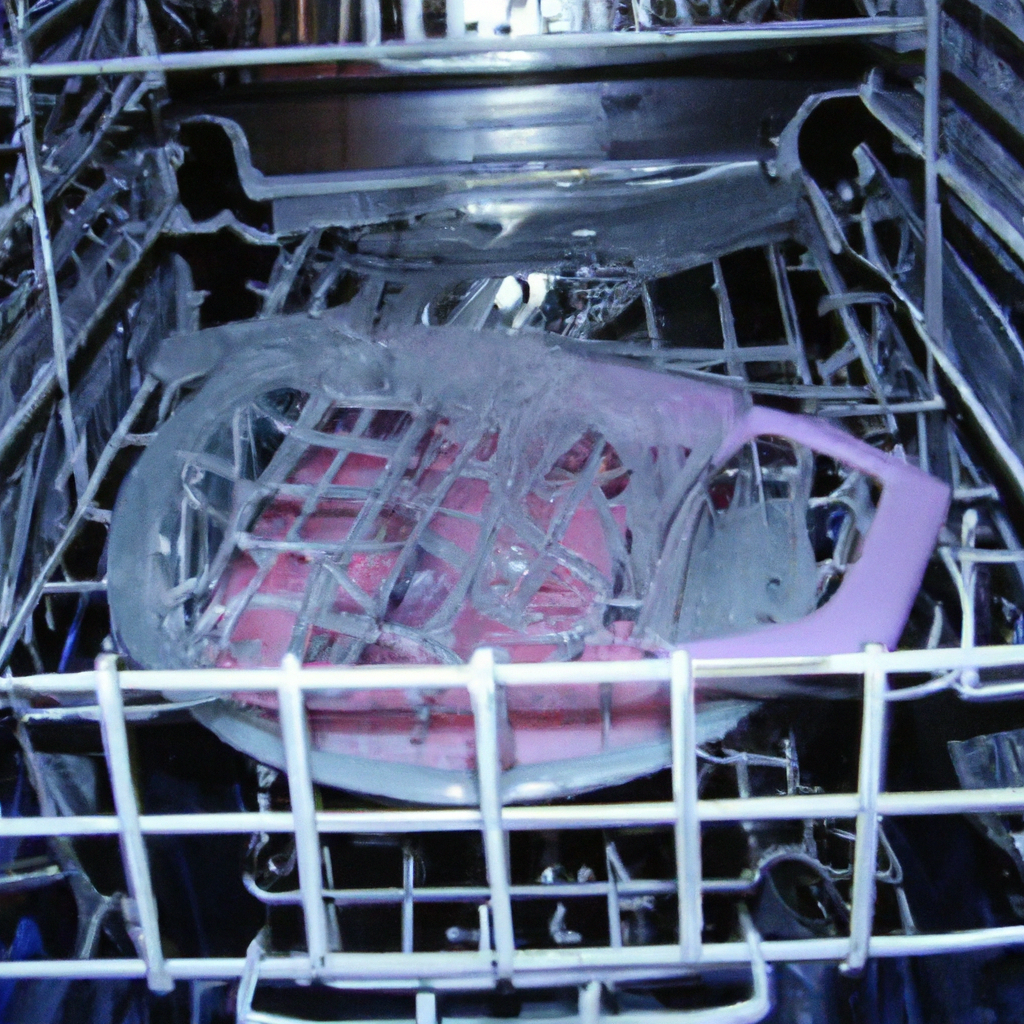
Impact on Plastic Quality
The use of non-dishwasher safe plastics in the dishwasher can significantly impact their quality and performance.
Loss of shape
When non-dishwasher safe plastics are subjected to high temperatures, they can lose their original shape and form. This can lead to uneven surfaces, misshapen containers, and lids that no longer fit properly. The loss of shape can reduce the functionality and practicality of the plastic items, making them less effective for their intended purposes.
Weakening of the plastic
The intense heat and harsh detergents used in dishwashers can weaken the molecular structure of non-dishwasher safe plastics. This weakening can make the plastic more susceptible to damage, resulting in chips, cracks, or even complete breakage. The items may become unsafe to use or unable to withstand normal daily use.
Creation of cracks and leaks in the plastic
Non-dishwasher safe plastics that are repeatedly exposed to dishwasher cycles can develop cracks or small leaks. These cracks can compromise the integrity of the plastic, making it more prone to breakage or allowing harmful bacteria to contaminate the contents of the plastic item. This poses serious health risks and reduces the lifespan of the plastic product.
Chemical Leaching Concerns
One of the most significant concerns associated with using non-dishwasher safe plastics is the possibility of chemical leaching.
Possible leaching of harmful chemicals
When non-dishwasher safe plastics are exposed to high temperatures and harsh detergents, they can release harmful chemicals into the surrounding environment. These chemicals, such as bisphenol A (BPA) or phthalates, can leach into the dishwasher water and potentially contaminate other dishes or utensils being cleaned alongside the non-dishwasher safe plastics. This poses a risk to both human health and the environment.
Risk of chemicals contaminating other dishes
When non-dishwasher safe plastics are washed in the dishwasher, there is a chance that the chemicals released from the plastic can transfer onto other dishes, utensils, or even glassware. These chemicals may not be detectable by sight or smell, making it difficult to know if other items have been contaminated. Consuming food or beverages from such contaminated dishes can lead to chemical exposure and potential health risks.
Health risks associated with chemical exposure
Exposure to the chemicals released from non-dishwasher safe plastics can have adverse health effects. Certain chemicals, like BPA, have been linked to hormonal imbalances, reproductive issues, and even an increased risk of certain cancers. By using non-dishwasher safe plastics in the dishwasher, you expose yourself to these harmful chemicals and put your health at risk.
Effect on Food Safety and Quality
The use of non-dishwasher safe plastics in the dishwasher can have significant implications for food safety and the overall quality of the meals you prepare.
Potential for plastic chemicals to leach into food
When non-dishwasher safe plastics come into contact with hot water, detergents, and food residues, there is a risk of chemical transfer into the food being prepared or served. These chemicals can alter the taste, odor, and nutritional composition of the food, compromising its quality and potentially rendering it unsafe for consumption.
Impact on the taste and smell of food
Non-dishwasher safe plastics can absorb odors and flavors from the food and beverages they come into contact with. If these plastic items are used in the dishwasher, the high temperatures and cleaning agents can further amplify this odor absorption, leading to an unpleasant taste or smell in future meals. Even after thorough washing, the plastic may retain these undesirable odors, affecting the overall dining experience.
Health risks posed by contaminated food
Consuming food that has come into contact with non-dishwasher safe plastics can pose health risks due to potential chemical contamination. The chemicals released from these plastics have the potential to disrupt hormonal balance, affect organ function, or lead to long-term health issues. To ensure food safety, it is crucial to avoid using non-dishwasher safe plastics in the dishwasher and opt for dishwasher-safe alternatives.
Effects on Dishwasher Performance
The use of non-dishwasher safe plastics can have detrimental effects on the performance and functionality of your dishwasher.
Potential for melted plastic to block dishwasher components
When non-dishwasher safe plastics melt or warp inside the dishwasher, they can adhere to the dishwasher’s heating elements, spray arms, or filters. This can obstruct the proper functioning of these components and impede the dishwasher’s ability to effectively clean and sanitize dishes. It may result in poor dishwasher performance, requiring additional cleaning or even repairs.
Increased risk of dishwasher malfunction
Using non-dishwasher safe plastics in the dishwasher can increase the likelihood of dishwasher malfunctions. The melted or deformed plastic can clog dishwasher drains or damage vital components, resulting in reduced efficiency and increased energy consumption. It may also strain the dishwasher’s motor or circuitry, potentially leading to a breakdown and the need for costly repairs.
Cost implications of dishwasher repairs
Repairing a dishwasher that has been damaged by using non-dishwasher safe plastics can be an expensive endeavor. The cost of replacing damaged components, restoring proper functioning, or even buying a new dishwasher altogether can be significantly higher than the cost of purchasing dishwasher-safe plastics or opting for alternative materials. Ensuring dishwasher safety by avoiding non-dishwasher safe plastics can save you money in the long run.
Environmental Impact of Dishwashing Non-Dishwasher Safe Plastics
Using non-dishwasher safe plastics in the dishwasher can have negative environmental implications.
Increased plastic waste due to degradation
Non-dishwasher safe plastics that are exposed to the harsh conditions inside the dishwasher are likely to deteriorate more quickly. As a result, these plastic items may need to be replaced more frequently, contributing to increased plastic waste. This unnecessary waste puts an additional burden on waste management systems and adds to the growing problem of plastic pollution in the environment.
Environmental hazard posed by chemical leaching
The release of harmful chemicals from non-dishwasher safe plastics during dishwasher cycles poses an environmental hazard. These chemicals can contaminate the water supply, negatively affect aquatic ecosystems, and harm the overall balance of the environment. By avoiding the use of non-dishwasher safe plastics, you can minimize the environmental impact of chemical leaching.
Impact on waste management systems
Non-dishwasher safe plastics that are improperly discarded can cause difficulties in waste management systems. The melting or warping of these plastics during dishwasher use can render them unrecyclable, leading to increased waste that ends up in landfills or incineration. This places strain on waste management facilities and contributes to the overall waste management challenges faced by communities worldwide.
Alternatives to Non-Dishwasher Safe Plastics
To mitigate the risks and negative effects associated with non-dishwasher safe plastics, there are several alternatives you can consider.
Using dishwasher-safe plastics
Many manufacturers offer a wide range of dishwasher-safe plastics that are specifically designed to withstand the high temperatures and cleaning agents used in dishwashers. Look for items labeled as dishwasher-safe or check for the appropriate dishwasher symbol. By opting for dishwasher-safe plastics, you can ensure the longevity and safe use of your plastic items.
Choosing reusable materials like glass or metal
Another alternative to non-dishwasher safe plastics is to choose reusable materials like glass or metal. Glass containers, stainless steel utensils, and metal food storage options provide a safe and environmentally friendly alternative to plastic. These materials are dishwasher-safe, durable, and do not pose the same risks associated with non-dishwasher safe plastics.
Hand washing non-dishwasher safe plastics
If you have non-dishwasher safe plastic items that you still wish to use, it is crucial to wash them by hand. Hand washing allows you to control the temperature and the strength of detergents, reducing the risks of plastic damage, chemical leaching, and environmental contamination. Always follow the manufacturer’s instructions for proper cleaning and care of the non-dishwasher safe plastics.
Safe Handling of Non-Dishwasher Safe Plastics
When handling non-dishwasher safe plastics, it is essential to practice safe usage and care.
Importance of reading product labels
Before using any plastic item in the dishwasher, it is crucial to read and understand the product labels. Look for dishwasher-safe symbols or indications that the plastic should only be hand washed. Following the manufacturer’s instructions and recommendations can help ensure the proper care, maintenance, and lifespan of the plastic items.
Proper cleaning and care of non-dishwasher safe plastics
For non-dishwasher safe plastics that cannot be avoided, proper cleaning and care are essential. Use mild dish soap, lukewarm water, and a soft sponge or cloth to clean the plastic items. Avoid using abrasive cleaners, harsh scrubbers, or excessive force that can damage the plastic. Rinse thoroughly and dry the items completely before storing or using them again.
Storage considerations for these plastics
When storing non-dishwasher safe plastics, it is important to take certain precautions. Keep them away from direct sunlight, as prolonged exposure to sunlight can accelerate plastic degradation. Store them in a cool, dry place, and avoid stacking or overcrowding them, as this can lead to warping or deformation. Proper storage can help extend the lifespan of the non-dishwasher safe plastics.
Conclusion: The Importance of Dishwasher Safety
Understanding and practicing dishwasher safety is of paramount importance for both your health and the longevity of your dishwasher.
The collective harm of ignoring dishwasher safety
By disregarding dishwasher safety guidelines and using non-dishwasher safe plastics, you put yourself, others, and the environment at risk. The cumulative effect of chemical leaching, damage to plastic items, and increased waste poses significant challenges to human health, ecosystems, and waste management systems.
Effect on user health and appliance longevity
Dishwasher safety is directly linked to user health and the lifespan of your dishwasher. Using non-dishwasher safe plastics can result in chemical exposure and potential health risks. Additionally, the damage caused by melted plastic or clogged components can lead to costly repairs or the need for a replacement dishwasher, impacting your finances.
Cost implications of disregarding safety norms
Choosing not to adhere to dishwasher safety guidelines can result in financial consequences. Repairing or replacing a dishwasher damaged by non-dishwasher safe plastics can be a costly endeavor. Additionally, the need for frequent replacement of non-dishwasher safe plastic items increases overall household expenses. By prioritizing dishwasher safety, you can avoid these unnecessary costs.
In conclusion, understanding and respecting dishwasher safety guidelines is crucial to ensure the longevity of your dishwasher, protect your health, and reduce the environmental impact of plastic waste. By using dishwasher-safe plastics, opting for reusable materials, and practicing proper care and handling, you can maintain a safe and efficient dishwasher while minimizing harm to yourself and the environment.


